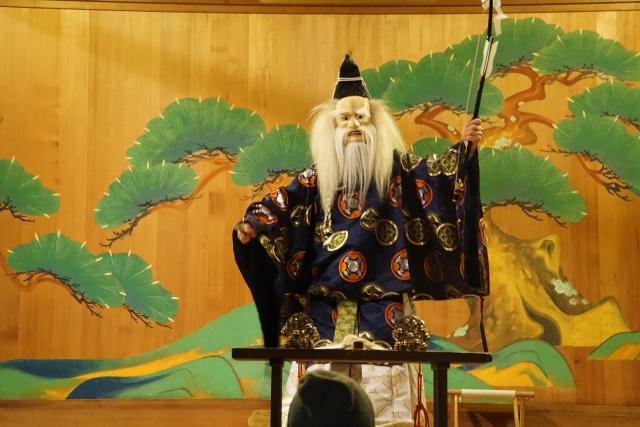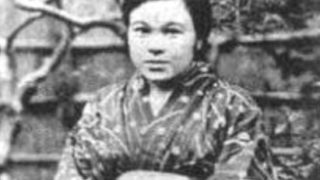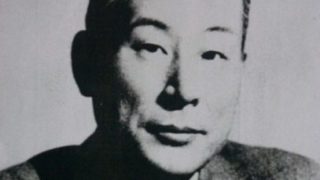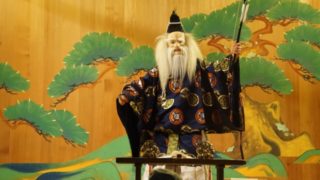Contents
- 1 Famous quotes, life and personality of Zeami
- 2 “Embodiment of Japanese traditional arts” finding from the collection of his famous quotes.
- 2.1 “Never forget the beginner’s humility”
- 2.2 “The most beautiful flower I keep to myself”
- 2.3 “Looking from Audience eyes makes it visible yourself”
- 2.4 “House is not house without taking over its value”
- 2.5 “You should know that a flower doesn’t stay in one place”
- 2.6 “The true beauty of the flower will diminish if you only focus on your favorite part”
- 3 Zeami’s lifetime
- 4 Zeami’s performance textbook “Fushikaden” shows his personality
- 5 To end his story
Famous quotes, life and personality of Zeami
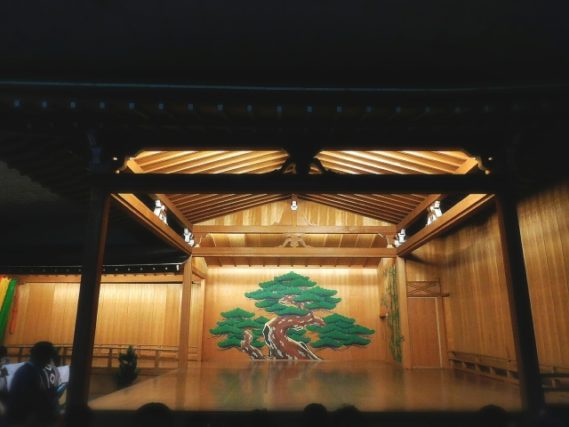
His distinctive characteristics are earnest and exhaustive. Since he was born in a family owning Kanze(観世), which is a school of Noh(能), he couldn’t get away from his fate for performance. He was focused on the performance arts no matter what happened to him. All of his famous quotes are also related to his life of performance arts. He had a blessed environment that he was the son of brilliant art performer, Kanami(観阿弥); and the powerful general, Yoshimitsu Ashikaga(足利義満) and the chief advisor of emperor, Yoshitomo Nijo(二条良基) were really attracted to his fascinating handsome face, but his gorgeous life was gradually descending. Thinking about his life as a bar chart, the beginning of his life was an extremely high position, but it was gradually descending. His remarkable point was he had never given up. He refined the performance arts he took over from his father. He was considered to be falling into decline, but his perseverance bore marvelous fruits. His tremendous amount of scripts from the masterpieces are still worth reading. His textbooks including his famous quotes are not only helpful for art performer, but also useful as a guide book for our life. He was a flawless skillful leader of his troupe in his middle-ages, but his tone had got more matured with getting older.
“Embodiment of Japanese traditional arts” finding from the collection of his famous quotes.
“Never forget the beginner’s humility”
It needs to keep your immaturity in mind, and never neglect your training.
“The most beautiful flower I keep to myself”
It’s basically better to keep fascinating things secret.
“Looking from Audience eyes makes it visible yourself”
It’s possible to see your real appearance by putting yourself in the audience’s viewpoint and observe yourself.
“House is not house without taking over its value”
House is not merely the thing to inherit, but needs to become the being deserving to devolve.
“You should know that a flower doesn’t stay in one place”
Fascinating things are infinitely changing to be a variety of things.
“The true beauty of the flower will diminish if you only focus on your favorite part”
“If you focus on one part of the flower, you’ll miss the full beauty of it.
These are his famous quotes. What did you feel?
Zeami’s lifetime
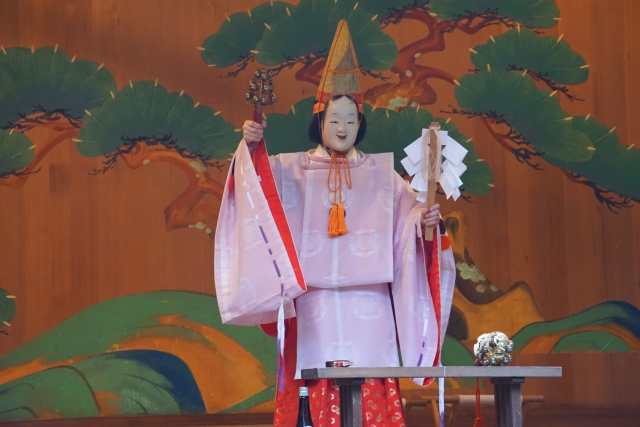
Fascinating handsome guy in contrast to his childhood name, Oniyasha.
A very well-known name among Japan; born in a performance arts family, devoted everything to it, and died in it, his name is Zeami(世阿弥), his other name, Kanze Saburo Motokiyo(観世三郎元清). He is the first son of Kanami(観阿弥), and he made Sarugaku(申楽) popular across Japan, which was previously known as merely public musical and Shinto ritual, and the highest authorities also admired him. His captivating beauty in contradiction to his extremely infamous young name, Oniyasha(鬼夜叉), attracted the third general, Yoshimitsu Ashikaga and the chief advisor of emperor, Yoshitomo Nijo who were the highest authorities at the period. He refined his “sense of beauty” through being taken care of by them.
The handsome guy got attacked by severe reality
Before long, his father passed away during his performance trip to Fuji Asama Shrine. He was willing to show up the stage despite of his serious disease. After that, Zeami took over his father’s performance name as a second generation, called Nidaime Saburo Motokiyo(二代目三郎元清).
He also lost his supporters, but he made his masterpieces in the circumstance of the rivals’ entry. After his father’s death, Yoshitomo Nijo and Yoshimitsu Ashikaga who took care of Zeami passed away in succession. This caused rivals to arise, such as Zoami(増阿弥) and Doami(道阿弥); leaving Zeami behind. He began to refine his experienced talent in his masterpieces, named “Sanemori(実盛)” “Yorimasa(頼政)” “Yashima(矢島)” “Izutsu(井筒)” “Koinoomoni(恋重荷)” “Kaburagi(鏑木)” “Kinuta(砧)” “Yu(融)” “Hanagatami(花筐)” “Saigyozakura(西行桜)” “Higaki(桧垣)” etc. These pieces fully recreated “Yugenbi(幽玄美)” which illustrated the stories of war history and dynastic literature. He handed down a lot of pieces to the next generation.
Best endeavor for training disciples
On the other hand, he put the best enough effort into training his nephew, Onami(音阿弥), his first son, Kanze Motomasa(観世元雅) and his adoptive child, Konparu Zenchiku(金春禅竹). Although they actualized their own talent, Onami, who was initially supposed to take over Zeami’s troupe was alienated because Zeami’s first son was born and grew up. Onami and his father left Yuzakiza(結崎座) which is one of the performance troupe belonging to Zeami. After that, the 6th general, Yoshinori Ashikaga(足利義教) started to take a lot care of Onami, so that they began to take revenge on Zeami.
Conflict with the scary capable general, and tragedy
Zeami was forced to worked for Takisarugaku(薪申楽) in Kofuku Temple, and banned from getting into Sendo Gosho(仙洞御所). He also lost the right to perform at Daigo Seiryo Shrine. More importantly, one thing that shouldn’t be, happened in 1432. Zeami’s first son, Motomasa was killed by someone during performance trip. Official report stated he was caught up in a fight, but its details are still unclear. Since Zeami believed Motomasa will surpass his skill, he had appointed Motomasa for the role of leading the next generation of their troupe and Noh. That’s why Zeami had taught his secret performance piece to Motomasa. This piece is named “Kyakuraifu(却来風)” which includes the highest style technique despite its simple design.
Zeami didn’t even quit performance arts.
He even immersed himself into training performance arts. He made the best effort to perform himself, write and teach his performance arts, in order to sustain his performance troupe which was facing difficult situations. In 1434, he was suddenly demoted and exiled to Sado Island before curing his deep sorrow of losing his son. He kept performing with the island residents even though he didn’t know anyone on the island, where was segregated from main land. After a while, he was forgiven and returned to Yamato, but he passed away before long. It is unknown the exact year when he died, but reportedly he ended his days at the age of around 80.
He respected Zen(禅) and cherished his father’s legacy, and enhanced his talent and sense of beauty with being taken care of by Yoshimitsu and Yoshitomo. He refined his performance arts while in the circumstances of enduring a severe situation. Oddly, Yoshinori Ashikaga lost his life with being attacked by someone while Onami was performing in Akamatsu residence(赤松屋敷) at the almost same time Zeami passed away.
Zeami’s performance textbook “Fushikaden” shows his personality
Fushikaden(風姿花伝) is well-known among his textbooks and shows how to spend our life with fitting the growth and decline of our body. This great piece can be applied to contemporary society. This describes precisely the method of how to behave and design the performance arts in response to the audiences’ feeling and reaction. Since Zeami seemed to love to summarize something, he left many textbooks by setting priority from important things with putting titles of Kanbun(Chinese classics). Although it’s hard to obtain, his textbooks are worth reading, such as “Kakyo(花鏡)” “Goi(五位)” “Kui(九位)” “Rikugi(六義)” and “Shugyokutokka(拾玉得花).” These are really well-refined with being gracious enough. He tended to be completely obsessed once he got curious.
To end his story
His achievements aren’t known enough despite his well-known name. Nowadays Noh might not have existed without he and his disciples’(Kanami、Motoharu、Zenchiku) contribution. His generation was really a golden period. Thinking about this period, Chinese thought, Zen was transmitted so that it was the turning point of Japanese culture. Sesshu(雪舟) who was a master of ink and wash painter, and Muso Soseki(夢窓疎石) who was a Rinzai Zen Buddhist monk. A lot of historical figures surely took over the tradition of “Yugen(幽玄)” from Heian period(794-1185). This became the beginning of “Wabi(わび)” and “Sabi(さび)” culture which were grown later. Muromachi Shogunate had rapidly lost its power after Yoshinori’s death, and before long, warring states period had started emerging all over Japan.
Zeami was genius in the period of these circumstances. And his achievements are still remaining with having great influence now. He was truly a person who devoted everything in his life to performance arts. Although he had been involved a lot of trouble, he endured and got through, or rather, he had no choice other than keeping going. “Yugenbi(幽玄美)” really seems to reflect his life. This is definitely “The most beautiful flower I keep to myself.”
Next, I will post an article with Japanese together for those who want to learn Japanese.
世阿弥の名言・生涯・人柄に学ぶ「秘すれば花」能の大成にすべてを捧げた男
Famous quotes, life and personality learning from Zeami, the man who devoted his life to the traditional performance arts called Noh.
———————————————————————–
もくじ
Contents世阿弥の名言・生涯・人柄
Famous quotes, life and personality of Zeami世阿弥の名言集。まさに「芸の権化」
“Embodiment of Japanese traditional arts” findings from the collection of his famous quotes.「初心忘るるべからず」
“Never forget the beginner’s humility”「秘すれば花」
“The most beautiful flower I keep to myself”「離見の見にて見るところは即ち見所同心の見なり」
“Looking from Audience eyes makes it visible yourself”「家、家にあらず。継ぐを以て家とす」
“House is not house without taking over its value”「住たるなきをまず花と知るべし」
“You should know that a flower doesn’t stay in one place”「時分の花をまことの花と知る心が真実の花になお遠ざかる心なり」
“The true beauty of the flower will diminish if you only focus on your favorite part”世阿弥の生涯
Zeami’s lifetime世阿弥の幼名「鬼夜叉」その名とは裏腹のあまりに妖艶な美少年
Fascinating handsome guy in contrast to his childhood name, “Oniyasha.”時代の美少年から次第に冷たく吹きすさぶ時代の風
The handsome guy got attacked by severe reality後進の教育にも尽力
Best endeavor for training disciples「万人恐怖」の剛腕将軍との確執と世阿弥に襲い来る悲劇
Conflict with the scary, capable, general, and tragedy世阿弥は「なおも舞うをやめず」
Zeami didn’t even quit a performance世阿弥といえば芸の教育書「風姿花伝」そこに垣間見る人柄
Zeami’s performance textbook “Fushikaden” shows his personality世阿弥の名言・生涯・人柄のまとめとして
To end his story
———————————————————————–
世阿弥の名言・生涯・人柄
Famous quotes, life and personality of Zeami
世阿弥という人物から感じられるものはとにかくその「一途」で「徹底的」なところ。
His distinctive characteristics are earnest and exhaustive.
「観世という芸の一家に生まれた」という逃れがたい宿縁もあるが、何があっても「芸」。
Since he was born in a family owning Kanze(観世), which is a school of Noh(能), he couldn’t get away from his fate for performance. He was focused on the performance arts no matter what happened to him.
世阿弥が残した名言もすべて「芸」に通じている。
All of his famous quotes are also related to his life of performance arts.
世阿弥は天下の申楽師である観阿弥の子であり、足利義満や二条良基などが次々とぞっこんになるような美童ぶり、などかなり恵まれた環境などもあったのだろうが、長じるにつれてそんな花盛りの人生に暗雲が垂れ込める。
He had a blessed environment that he was the son of brilliant art performer, Kanami(観阿弥); and the powerful general, Yoshimitsu Ashikaga(足利義満) and the chief advisor of emperor, Yoshitomo Nijo(二条良基) were really attracted to his fascinating handsome face, but his gorgeous life was gradually descending.
人生の棒グラフでいえば始めが飛びぬけていて次第に漸減してゆくというのがあまりにも顕著。
Thinking about his life as a bar chart, the beginning of his life was an extremely high position, but it was gradually descending.
ただ、彼の凄みはそこで終わらなったところ。
His remarkable point was he had never given up.
かつてあった財産を自分の中でさらに研ぎ澄まし、形にする。
He refined the performance arts he took over from his father.
世阿弥は衰運であったとは言うが、彼の実はかえって飛躍をしていた。
He was considered to be falling into decline, but his perseverance bore marvelous fruits.
余りに膨大な世阿弥の名作台本は今なお一見の価値あり。
His tremendous amount of scripts from the masterpieces are still worth reading.
そして、名言のちりばめられた世阿弥の教育書は芸能者だけでなく、人生の指南書として必見。
His textbooks including his famous quotes are not only helpful for art performer, but also useful as a guidebook for our life.
中年期は抜けめない名座長だったのが、次第に老練し、格調は増してゆく。
He was a flawless skillful leader of his troupe in his middle-ages, but his tone had got more matured with getting older.
世阿弥の名言集。まさに「芸の権化」
“Embodiment of Japanese traditional arts” finding from the collection of his famous quotes.
「初心忘るるべからず」
“Never forget the beginner’s humility”
常に己の未熟さを忘れず稽古を怠るな。
It needs to keep your immaturity in mind, and never neglect your training.
「秘すれば花」
“The most beautiful flower I keep to myself”
人の心を動かすものとはまず隠しておくことだ。
It’s basically better to keep fascinating things secret.
「離見の見にて見るところは即ち見所同心の見なり」
“Looking from Audience eyes makes it visible yourself”
観客の立場から己を見て初めて己の姿を見ることができる。
It’s possible to see your real appearance by putting yourself in the audience’s viewpoint and observe yourself.
「家、家にあらず。継ぐを以て家とす」
“House is not house without taking over its value”
家はただ継ぐものではない。継承に値するをもって家とする。
House is not merely the thing to inherit, but needs to become the being deserving to devolve.
「住たるなきをまず花と知るべし」
“You should know that a flower doesn’t stay in one place”
よいものとは常に千変万化する。
Fascinating things are infinitely changing to be a variety of things.
「時分の花をまことの花と知る心が真実の花になお遠ざかる心なり」
“The true beauty of the flower will diminish if you only focus on your favorite part”
旬の美しさを本物の美しさと思っていると、本物の美しさは遠ざかってゆく。
“If you focus on one part of the flower, you’ll miss the full beauty of it.
いかがであろう。世阿弥の名言録である。
These are his famous quotes. What did you feel?
世阿弥の生涯
Zeami’s lifetime
世阿弥の幼名「鬼夜叉」その名とは裏腹のあまりに妖艶な美少年
Fascinating handsome guy in contrast to his childhood name, Oniyasha.
一度は聞いたことのあるはずのその名、芸に生まれ、芸に捧げ、芸に死した男、その名は世阿弥、観世三郎元清。元大衆、神事の芸であった申楽を一躍「天下」の認めるところとした観阿弥の嫡男。
A very well-known name among Japan; born in a performance arts family, devoted everything to it, and died in it, his name is Zeami(世阿弥), his other name, Kanze Saburo Motokiyo(観世三郎元清). He is the first son of Kanami(観阿弥), and he made Sarugaku(申楽) popular across Japan, which was previously known as merely public musical and Shinto ritual, and the highest authorities also admired him.
「鬼夜叉」その至極いかめしい幼名とは裏腹に、この世ならざる妖艶なる美しさ、三代将軍足利義満、関白二条良基ら、当時政権の頂点にあった素養人を虜にし、深く彼らの懐にあって、「美の感性」を磨いていった。
His captivating beauty in contradiction to his extremely infamous young name, Oniyasha(鬼夜叉), attracted the third general, Yoshimitsu Ashikaga and the chief advisor of emperor, Yoshitomo Nijo who were the highest authorities at the period. He refined his “sense of beauty” through being taken care of by them.
時代の美少年から次第に冷たく吹きすさぶ時代の風
The handsome guy got attacked by severe reality
やがて、父が興行先の富士浅間神社にて客死、重い病身にあってなお観阿弥はその舞台に立たんとした。
Before long, his father passed away during his performance trip to Fuji Asama Shrine. He was willing to show up the stage despite of his serious disease.
そして、観世の名跡を父より継ぎ、二代三郎元清を名乗る。
After that, Zeami took over his father’s performance name as a second generation, called Nidaime Saburo Motokiyo(二代目三郎元清).
世阿弥は擁護者を失い、ライバルが台頭する中…名作を記す
He also lost his supporters, but he made his masterpieces in the circumstance of the rivals’ entry.
追うように二条良基、足利義満ら世阿弥を深く囲っていた擁護者が相次いで亡くなると、さらに増阿弥、道阿弥ら新興の同業ライバルたちが次々と台頭、次第に一線での活躍からフェイドアウトを余儀なくされるが、ここに来て世阿弥はかねてよりの素養を台本として続々昇華させてゆく。
「実盛」「頼政」「八島」「井筒」「恋重荷」「鏑木」「砧」「融」「花筐」「西行桜」「桧垣」……。
After his father’s death, Yoshitomo Nijo and Yoshimitsu Ashikaga who took care of Zeami passed away in succession. This caused rivals to arise, such as Zoami(増阿弥) and Doami(道阿弥); leaving Zeami behind. He began to refine his experienced talent in his masterpieces, named “Sanemori(実盛)” “Yorimasa(頼政)” “Yashima(矢島)” “Izutsu(井筒)” “Koinoomoni(恋重荷)” “Kaburagi(鏑木)” “Kinuta(砧)” “Yu(融)” “Hanagatami(花筐)” “Saigyozakura(西行桜)” “Higaki(桧垣)” etc.
いずれも戦記物、王朝文学などに題材をとった「幽玄美」を遺憾なく体現。
These pieces fully recreated “Yugenbi(幽玄美)” which illustrated the stories of war history and dynastic literature.
後世に演じられ続ける名作を多数ものした。
He handed down a lot of pieces to the next generation.
後進の教育にも尽力
Best endeavor for training disciples
一方で、後進の教育にも力を入れ、甥の音阿弥、嫡男観世元雅、養子金春禅竹らを育てた。
On the other hand, Zeami put the best enough effort into training his nephew, Onami(音阿弥), his first son, Kanze Motomasa(観世元雅) and his adoptive child, Konparu Zenchiku(金春禅竹).
それぞれ後に能を背負って立つ逸材に育てるも、元来世阿弥の跡を継ぐはずであった音阿弥が観世元雅の誕生と成長により、疎外された。
Although they actualized their own talent, Onami, who was initially supposed to take over Zeami’s troupe was alienated because Zeami’s first son was born and grew up.
彼の父と共に結崎座を出奔、その後、やがて六代将軍となって権勢にのし上がってきた足利義教に寵愛されると、ともになって、世阿弥一派への攻撃を始める。
Onami and his father left Yuzakiza(結崎座) which is one of the performance troupe belonging to Zeami. After that, the 6th general, Yoshinori Ashikaga(足利義教) started to take a lot care of Onami, so that they began to take revenge on Zeami.
「万人恐怖」の剛腕将軍との確執と世阿弥に襲い来る悲劇
Conflict with the scary capable general, and tragedy
興福寺薪申楽への参勤、仙洞御所への出入り禁止、醍醐清滝宮の楽頭職罷免。
Zeami was forced to worked for Takisarugaku(薪申楽) in Kofuku Temple, and banned from getting into Sendo Gosho(仙洞御所). He also lost the right to perform at Daigo Seiryo Shrine.
そして、永享八年(1432年)あってはならないことが起こる。
More importantly, one thing that shouldn’t be, happened in 1432.
伊勢に興行に出ていた嫡男元雅が何者かによって刺され、命を落とす。
Zeami’s first son, Motomasa was killed by someone during performance trip.
喧嘩に巻き込まれてというのが公式の記録だが、その詳細ははっきりとはしない。
Official report stated he was caught up in a fight, but its details are still unclear.
世阿弥はこの子を「我を越えたる逸材」と頼もしくもその座と能の未来を託していた。
Since Zeami believed Motomasa will surpass his skill, he had appointed Motomasa for the role of leading the next generation of their troupe and Noh.
彼にだけは門外不出の秘曲の舞を託していた。
That’s why Zeami had taught his secret performance piece to Motomasa.
その歌を「却来風」といい、至極単調ながらそこに最高の玄妙が秘められているという。
This piece is named “Kyakuraifu(却来風)” which includes the highest style technique despite its simple design.
世阿弥は「なおも舞うをやめず」
Zeami didn’t even quit performance arts.
なおも世阿弥はただひたすらに芸に精進。
He even immersed himself into training performance arts.
いよいよ苦境にある座をなんとしてでも持ちこたえるべく演じ、書き、教え、束ねた。
He made the best effort to perform himself, write and teach his performance arts, in order to sustain his performance troupe which was facing difficult situations.
が、傷心冷めやらぬ永享六年彼は突如として佐渡への配流を申し渡される。
In 1434, he was suddenly demoted and exiled to Sado Island before curing his deep sorrow of losing his son.
何の知人よんどころない隔海の孤島だが、そんな中にあっても彼は島民たちと舞いを分かち合った。
He kept performing with the island residents even though he didn’t know anyone on the island, where was segregated from main land.
やがて、許され大和に帰還し、余生のうちに死亡。
After a while, he was forgiven and returned to Yamato, but he passed away before long.
正確な享年は残っていないが80歳前後と伝わる。
It is unknown the exact year when he died, but reportedly he ended his days at the age of around 80.
禅をよくし、父の切り開いた遺風に倣い、義満や良基らによる頂上の素養と美意識、それを時の移ろうとともに当たりの強くなってきた逆風の中、よく耐え、却って芸として純化させた。
He respected Zen(禅) and cherished his father’s legacy, and enhanced his talent and sense of beauty with being taken care of by Yoshimitsu and Yoshitomo. He refined his performance arts while in the circumstances of enduring a severe situation.
不思議なことに世阿弥の亡くなったとされるちょうど同じころ、足利義教は赤松屋敷にて音阿弥が舞っているその最中に襲われ、落命した。
Oddly, Yoshinori Ashikaga lost his life with being attacked by someone while Onami was performing in Akamatsu residence(赤松屋敷) at the almost same time Zeami passed away.
世阿弥といえば芸の教育書「風姿花伝」そこに垣間見る人柄
Zeami’s performance textbook “Fushikaden” shows his personality
世阿弥の教示書「風姿花伝」はその中でもよく知られたところ、生まれ出でるより長じ、やがて身体の衰えに合わせたその芸の心得方。現代社会にも通じる名作。
Fushikaden(風姿花伝) is well-known among his textbooks and shows how to spend our life with fitting the growth and decline of our body. This great piece can be applied to contemporary society.
その時その場所その顧客に合わせた「場」の読み方、作り方。など実にきめ細かく、精緻にまとめている。
This describes precisely the method of how to behave and design the performance arts in response to the audiences’ feeling and reaction.
世阿弥は、よほどの「まとめ好き」だったらしく、何かにつけては漢文ぽっく名前を付けて、大事なものから順位付けし、残している。
Since Zeami seemed to love to summarize something, he left many textbooks by setting priority from important things with putting titles of Kanbun(Chinese classics).
『花鏡』『五位』『九位』『六義』『拾玉得花』など、専門書でないとなかなか手に入らないが一度目を通してみると面白い。
Although it’s hard to obtain, his textbooks are worth reading, such as “Kakyo(花鏡)” “Goi(五位)” “Kui(九位)” “Rikugi(六義)” and “Shugyokutokka(拾玉得花).”
実に格調高く、ちょっとおせっかいなくらいの丁寧さだ。
These are really well-refined with being gracious enough.
気になるとどうもあれやこれやと徹底的にまでのめりこむらしい。
He tended to be completely obsessed once he got curious.
世阿弥の名言・生涯・人柄のまとめとして
To end his story
いかがだっただろうか。世阿弥は、その有名の割には意外にその業績の知られていない芸能の大家。彼や観阿弥、元雅、禅竹など一人でも欠けていたら今の能はなかったかもしれない。いや、存在しているだろうか。
His achievements aren’t known enough despite his well-known name. Nowadays Noh might not have existed without he and his disciples’(Kanami、Motoharu、Zenchiku) contribution.
まさに黄金時代だった。
His generation was really a golden period.
思えばこの時代、中国より「禅」という思想が流入し、文化の一つの画期だった。
Thinking about this period, Chinese thought, Zen was transmitted so that it was the turning point of Japanese culture.
雪舟、夢窓疎石、……。平安王朝以来の「幽玄」の伝統をしっかりと継承し、以後次第に隆盛となってゆく「わび」「さび」への萌芽となる。
Sesshu(雪舟) who was a master of ink and wash painter, and Muso Soseki(夢窓疎石) who was a Rinzai Zen Buddhist monk. A lot of historical figures surely took over the tradition of “Yugen(幽玄)” from Heian period(794-1185). This became the beginning of “Wabi(わび)” and “Sabi(さび)” culture which were grown later.
幕府は義教が横死し、求心力を急速に失い、間もなく日本全土を巻き込んだ戦乱の世となってゆく。
Muromachi Shogunate had rapidly lost its power after Yoshinori’s death, and before long, warring states period had started emerging all over Japan.
時代の境目に生まれた「天才」。
Zeami was genius in the period of these circumstances.
そして、彼の当時残した言行などは今なおまるで色あせることなく光芒を放ち続けている。
And his achievements are still remaining with having great influence now.
ただ一途に芸にその生涯のすべてを捧げたといっても過言ではない男。
He was truly a person who devoted everything in his life to performance arts.
本当はその都度迷いにさいなまれていただろうが、それでもただ突き進んだ男。突き進むしかなかった男。
Although he had been involved a lot of trouble, he endured and got through, or rather, he had no choice other than keeping going.
確かに彼そのものに見る「幽玄美」だ。
“Yugenbi(幽玄美)” really seems to reflect his life.
「秘すれば花」である。
This is definitely “The most beautiful flower I keep to myself.”
